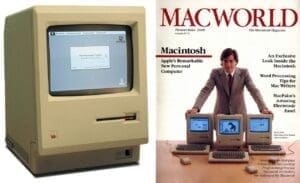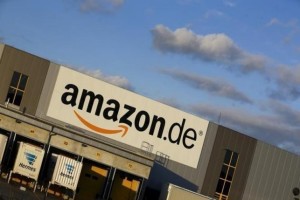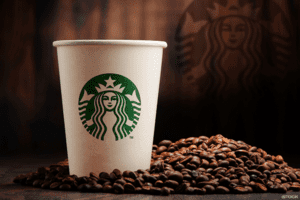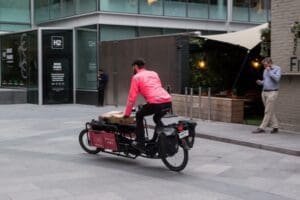 Thirty-six years ago, today, on January 24, 1984, Apple Computer placed the Macintosh personal computer on sale in the United States. This was the first mass-market personal computer that featured a graphical user interface, built-in screen and mouse. Upon its launch, it was bundled with two applications designed to show off its interface: MacWrite and MacPaint. This was the beginning in a long line of computers from Apple. The original Macintosh computers were significantly more expensive, and therefore had a difficult time penetrating both the B2C and B2B markets. Clearly the company figured things out when it comes to personal electronics. The success of Apple products, and the resulting supply chain ramifications are a case study in success. So cheers to 36 years of Mac.
Thirty-six years ago, today, on January 24, 1984, Apple Computer placed the Macintosh personal computer on sale in the United States. This was the first mass-market personal computer that featured a graphical user interface, built-in screen and mouse. Upon its launch, it was bundled with two applications designed to show off its interface: MacWrite and MacPaint. This was the beginning in a long line of computers from Apple. The original Macintosh computers were significantly more expensive, and therefore had a difficult time penetrating both the B2C and B2B markets. Clearly the company figured things out when it comes to personal electronics. The success of Apple products, and the resulting supply chain ramifications are a case study in success. So cheers to 36 years of Mac.
And now on to this week’s logistics news.
- Amazon orders electric vans from Deutsche Post’s StreetScooter
- Flipkart piloting fresh fruits & vegetables delivery in Hyderabad
- Starbucks to open pick-up focused location in Toronto’s PATH
- Logistics firms to test drive new ways of delivering freight in London
- Paris breathes a sigh of relief as transport gets back to normal after strikes
- Legal marijuana shortage in Illinois could linger
- Truck tonnage rose in 2019, but scored about half 2018 gain
 In September of last year, Amazon CEO Jeff Bezos pledged to make the company net carbon neutral by 2040, with a promise to buy 100,000 electric delivery vans as part of that plan. Amazon had agreed to purchase the majority of these vehicles from Rivian Automotive LLC, with deliveries starting in 2021. The company has just ordered 40 electric vans from Deutsche Post’s StreetScooter unit for deliveries in the German city of Munich as part of this overall sustainability plan. StreetScooter has also installed 60 charging stations at Amazon’s distribution center outside Munich. Adam Elman, sustainability head for Amazon Europe, said Amazon has already ordered a further 200 electric vehicles from other suppliers which it would start using in Germany this year.
In September of last year, Amazon CEO Jeff Bezos pledged to make the company net carbon neutral by 2040, with a promise to buy 100,000 electric delivery vans as part of that plan. Amazon had agreed to purchase the majority of these vehicles from Rivian Automotive LLC, with deliveries starting in 2021. The company has just ordered 40 electric vans from Deutsche Post’s StreetScooter unit for deliveries in the German city of Munich as part of this overall sustainability plan. StreetScooter has also installed 60 charging stations at Amazon’s distribution center outside Munich. Adam Elman, sustainability head for Amazon Europe, said Amazon has already ordered a further 200 electric vehicles from other suppliers which it would start using in Germany this year.
 Direct to consumer grocery delivery is heating up in India, especially with so many companies investing in the market. Walmart-owned e-commerce company Flipkart has started a pilot project in Hyderabad to deliver fresh fruits and vegetables in partnership with vendors on its marketplace. According to a statement from Flipkart: “Grocery is one of the key categories at Flipkart. The pilot project with fresh food in Hyderabad aims to get a better understanding of consumer behavior and the supply chain that we are developing to address the demand for this category.” Flipkart has historically stayed away from the fresh produce segment but now sees it as a necessity given the interest from both Amazon and Reliance Industries in India.
Direct to consumer grocery delivery is heating up in India, especially with so many companies investing in the market. Walmart-owned e-commerce company Flipkart has started a pilot project in Hyderabad to deliver fresh fruits and vegetables in partnership with vendors on its marketplace. According to a statement from Flipkart: “Grocery is one of the key categories at Flipkart. The pilot project with fresh food in Hyderabad aims to get a better understanding of consumer behavior and the supply chain that we are developing to address the demand for this category.” Flipkart has historically stayed away from the fresh produce segment but now sees it as a necessity given the interest from both Amazon and Reliance Industries in India.
 In Toronto, the PATH can be an essential part of moving through downtown in the winter. PATH is a network of underground pedestrian tunnels, elevated walkways, and at-grade walkways connecting the office towers of Downtown Toronto. In fact, it connects more than 19 miles of tunnels, walkways, and shopping areas. And now, Starbucks is launching a new store in the underground pedestrian complex. Starbucks Canada announced this week that it will open what it calls a pickup store in downtown Toronto’s underground pedestrian complex. The move is in direct response to the digital revolution that is driving home delivery rather than sitting in an actual coffee shop. According to Michael Conway, President of Starbucks Canada, this new format “is designed to modernize and reimagine the customer experience in high-traffic, urban areas.”
In Toronto, the PATH can be an essential part of moving through downtown in the winter. PATH is a network of underground pedestrian tunnels, elevated walkways, and at-grade walkways connecting the office towers of Downtown Toronto. In fact, it connects more than 19 miles of tunnels, walkways, and shopping areas. And now, Starbucks is launching a new store in the underground pedestrian complex. Starbucks Canada announced this week that it will open what it calls a pickup store in downtown Toronto’s underground pedestrian complex. The move is in direct response to the digital revolution that is driving home delivery rather than sitting in an actual coffee shop. According to Michael Conway, President of Starbucks Canada, this new format “is designed to modernize and reimagine the customer experience in high-traffic, urban areas.”
 Transport for London (TFL) has teamed up with ten firms to launch London FreightLab. The initiative, which aims to make road freight movement in London safer, cleaner, and more efficient, will offer funding and land sites for up to six innovative ideas which will be tested by its 10 industry partners. Michael Hurwitz, TFL’s director of transport innovation, said: “We want to work with the best market innovators from start-ups to corporates to help solve some of the key challenges that London faces. Freight is essential to London’s economy, but as the number of vans and lorries on our streets continues to go up, so does pollution, congestion and road danger. We believe innovative new ideas could make a real difference in reducing the impact of freight movements on the capital and this is why we’d like to encourage as many companies as possible to collaborate with us to do this.” The firms in the partnership are Ceva Logistics, DPD, Gnewt by Menzies, UPS, Royal Mail, Guy’s and St. Thomas’ NHS Foundation Trust, John Lewis Partnership, Plexal, Reef Technology, and Thames Water.
Transport for London (TFL) has teamed up with ten firms to launch London FreightLab. The initiative, which aims to make road freight movement in London safer, cleaner, and more efficient, will offer funding and land sites for up to six innovative ideas which will be tested by its 10 industry partners. Michael Hurwitz, TFL’s director of transport innovation, said: “We want to work with the best market innovators from start-ups to corporates to help solve some of the key challenges that London faces. Freight is essential to London’s economy, but as the number of vans and lorries on our streets continues to go up, so does pollution, congestion and road danger. We believe innovative new ideas could make a real difference in reducing the impact of freight movements on the capital and this is why we’d like to encourage as many companies as possible to collaborate with us to do this.” The firms in the partnership are Ceva Logistics, DPD, Gnewt by Menzies, UPS, Royal Mail, Guy’s and St. Thomas’ NHS Foundation Trust, John Lewis Partnership, Plexal, Reef Technology, and Thames Water.
 Paris is finally breathing a sigh of relief as transport gets “back to normal” after strikes. For the first time in nearly seven weeks, Paris transport has been listed as “normal” in the wake of the longest transport strike in 90 years. Since December 5th Parisians have been faced with finding alternative ways to get to work or school as the city’s Metro, bus, and tram services ground to a virtual standstill. But, just as things were looking up, the ports and docks branch of the CGT labor union has called for another 72-hour strike at France’s major ports this week in protest against the government’s proposals for the reform of state pensions. This follows strikes at French ports in December and a three-day stoppage last week that caused significant disruption.
Paris is finally breathing a sigh of relief as transport gets “back to normal” after strikes. For the first time in nearly seven weeks, Paris transport has been listed as “normal” in the wake of the longest transport strike in 90 years. Since December 5th Parisians have been faced with finding alternative ways to get to work or school as the city’s Metro, bus, and tram services ground to a virtual standstill. But, just as things were looking up, the ports and docks branch of the CGT labor union has called for another 72-hour strike at France’s major ports this week in protest against the government’s proposals for the reform of state pensions. This follows strikes at French ports in December and a three-day stoppage last week that caused significant disruption.
 The legal marijuana industry is booming. And as a result, supply shortages are a common occurrence. For example, in October 2018, Canada legalized recreational marijuana country-wide. When dispensaries opened, a funny thing happened – they sold out too fast. There was a significant gap in the expected demand versus the actual supply. When Massachusetts legalized marijuana, it put strict restrictions on the amount of marijuana a consumer could buy to ensure that there would not be a significant shortfall of supply. Apparently, Illinois has not been so fortunate. Legal marijuana shortages in Illinois are expected to last six months to a year or more, industry members warn, due to a lack of production capacity in the state. The tight market is expected to continue longer than in other states in part because Illinois has only 21 cultivation warehouses, far fewer than in many other states with legal cannabis.
The legal marijuana industry is booming. And as a result, supply shortages are a common occurrence. For example, in October 2018, Canada legalized recreational marijuana country-wide. When dispensaries opened, a funny thing happened – they sold out too fast. There was a significant gap in the expected demand versus the actual supply. When Massachusetts legalized marijuana, it put strict restrictions on the amount of marijuana a consumer could buy to ensure that there would not be a significant shortfall of supply. Apparently, Illinois has not been so fortunate. Legal marijuana shortages in Illinois are expected to last six months to a year or more, industry members warn, due to a lack of production capacity in the state. The tight market is expected to continue longer than in other states in part because Illinois has only 21 cultivation warehouses, far fewer than in many other states with legal cannabis.
 The American Trucking Association (ATA) has reported that its advanced seasonally adjusted For-Hire Truck Tonnage Index increased 3.3 percent in all of 2019, which is about half the annual rise it saw in 2018 (6.7 percent). The 2019 performance marks the 10th straight annual increase. The advanced SA For-Hire Truck Tonnage Index climbed 4 percent in December after falling 3.4 percent in November. ATA calculates the tonnage index based on surveys from its membership. This is a preliminary figure and subject to change in the final report, according to ATA, which is issued around the 5th day of each month. The report includes month-to-month and year-over-year results, relevant economic comparisons, and key financial indicators.
The American Trucking Association (ATA) has reported that its advanced seasonally adjusted For-Hire Truck Tonnage Index increased 3.3 percent in all of 2019, which is about half the annual rise it saw in 2018 (6.7 percent). The 2019 performance marks the 10th straight annual increase. The advanced SA For-Hire Truck Tonnage Index climbed 4 percent in December after falling 3.4 percent in November. ATA calculates the tonnage index based on surveys from its membership. This is a preliminary figure and subject to change in the final report, according to ATA, which is issued around the 5th day of each month. The report includes month-to-month and year-over-year results, relevant economic comparisons, and key financial indicators.
That’s all for this week. Enjoy the weekend and the song of the week, Radiohead’s Paranoid Android off OK Computer.

















